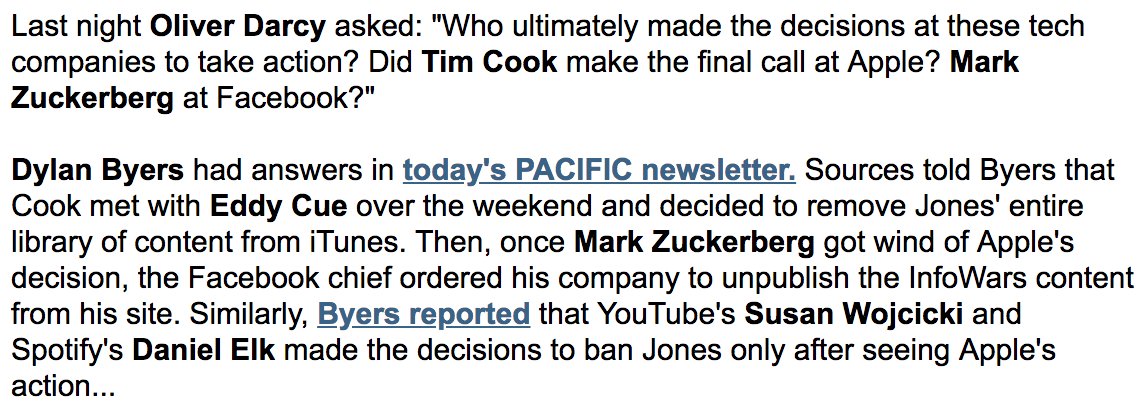
I teach journalism at NYU, critique the press, try to suggest reforms. PressThink is the name of my subject and my site. @jayrosen_nyu@mastodon.social
2 subscribers
How to get URL link on X (Twitter) App



https://twitter.com/jack/status/1026984247750316033As @caitlin__kelly pointed out, everything we know from behavioral science about conspiracy theory and wild factual claims tells us that @jack's innocent suggestion here will help spread those claims. Study up on the term "strategic silence," Jack.
https://twitter.com/jack/status/1026984249960755200

